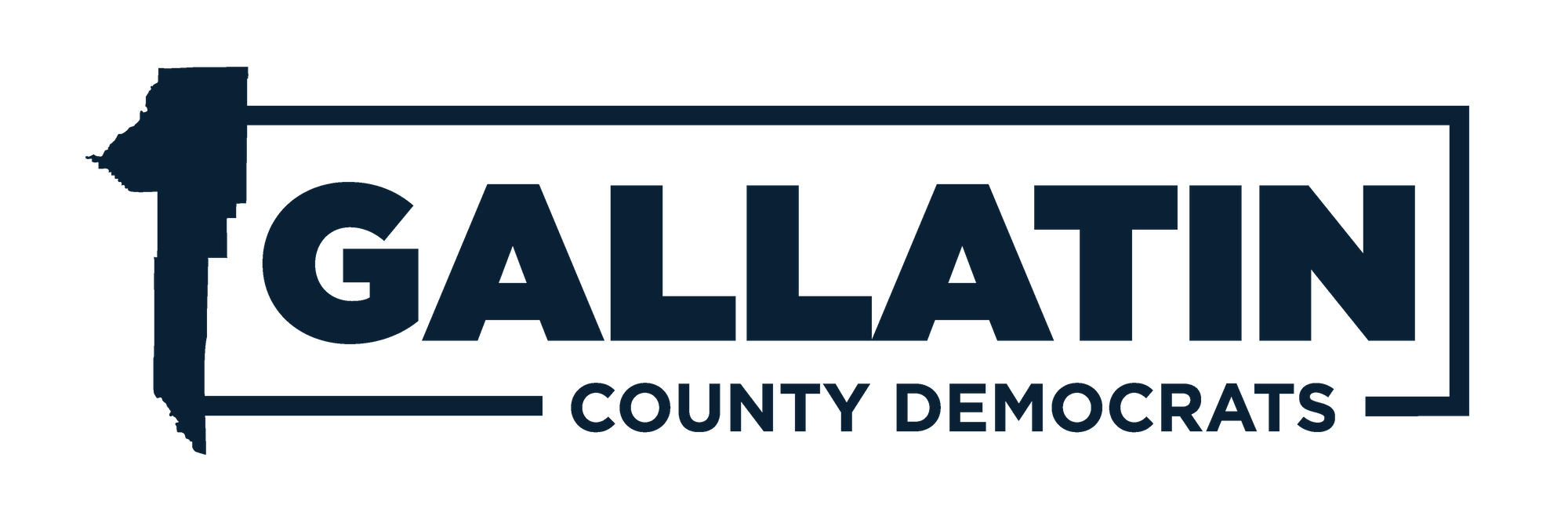Sitting in the audience at the Belgrade Candidate Forum last week, I was struck by a stark difference between the Democratic and Republican candidates. While there was certainly an ideological contrast, I find that sort of disagreement uninteresting and not very insightful into our current political moment. I could easily write a list detailing the points and counterpoints made during the forum–we already know where each candidate stands. What I found more telling, rather, were the kinds of presence I witnessed and the narratives about our politics those presences revealed.
When the candidates were asked if they would support full Medicaid reimbursement for the Gallatin Rest Home (currently, the Gallatin Rest Home loses $100 per day for each Medicaid resident–thus the need on our current ballot for a Mill Levy to keep it open), Rep. Jedediah Hinkle made a statement I found particularly revealing. He told a story about constituents he had spoken to while canvassing. Apparently, the folks he was referring to were on Medicaid and were, in Jedediah’s estimation, taking advantage of the system. He claimed that they would keep taking benefits and not contribute to society; this was his reason for undercutting all Medicaid.
As a community organizer, as someone who has knocked hundreds of doors in the places I’ve called home, I found Jedediah’s anecdote troubling. When I talk to members of our communities, my first and foremost priority is connection. Regardless of our politics, I aim to establish rapport, mutual respect, and common interest with my neighbors. Yet it is clear to me that this was not Jedediah’s aim. Rather than meet folks where they’re at, build relationships, and hold complexity, he demonstrated contempt for his constituents and used an opportunity for connection to breed resentment in the audience.
Rep. Caleb Hinkle, for his part, advocated for complete privatization of the Gallatin Rest Home, claiming that “competition” would reduce costs for Montana families. It appeared he was completely ignorant of how inaccessible private nursing homes are for everyday residents of our county and state. Caleb’s privatized, competitive, market-driven cosmology appeared throughout the forum. He even advocated for spending caps on Montana towns and cities based on population–another attempt by Republicans in Helena to deny Bozeman and Missoula the tools they need to address their respective housing crises. Shelley Vance’s answer (and unfortunately, her answers to most questions) seemed to lack much forethought–they were either confused or noncommittal.
At this point in the forum, I began to wonder: Where exactly are Jedediah and Caleb and Shelley? They were present in the room, of course, but where were they as people? In contrast, Democratic candidates Elizabeth Marum, Joe Hancock, and Damion Lynn answered in ways that felt rooted in community need and shared stake. They strongly supported full Medicaid reimbursement of Gallatin Rest Home costs. We are failing our seniors, they said, by not paying Montana’s Medicaid share. They warned that private companies would not be accountable to voters. When they were asked about their positions on LR131 and a woman’s right to choose, they made simple but succinct statements about how family medical decisions should not be dictated by the legislature, how healthcare is between pregnant people and their doctors, and how we need to be more concerned about the issues facing children and those who raise them.
The Republican candidates fully supported LR131 and opposed abortion. Jedediah’s answer was the most telling. In a classic and all-too-familiar move, he claimed that concerns about criminal penalties and fines against doctors were unfounded lies, and that no doctor would be prosecuted for following appropriate medical procedure. However, the ballot language clearly states a $50,000 fine and maximum 20-year prison sentence for doctors and does not specify who will decide what is medically appropriate. This reminded me of Republicans who for years told us that concerns about a Roe V. Wade overturn were unfounded and over-exaggerated, yet here we are.
The best way I can describe my impression of Jedediah, Caleb, and Shelley was simply that they were not present. While Jedediah and Caleb in particular were skillful at hitting all the Republican talking points, the narratives they told included nothing about themselves and their own lived experiences. Meanwhile, Elizabeth, Joe, and Damion brought genuine honesty to an otherwise fraught political space. I wasn’t expecting a frank discussion about poop during a candidate forum, yet Damion informed us about the importance of our local wastewater systems in his introduction. Elizabeth was forthcoming about her experience as a single mother in Belgrade, and Joe’s closing remarks on his experience growing up in poverty felt vulnerable, even subversive in a political space that more and more prides itself on its reactionary leanings and false projections of power.
The forum left me wondering if there is space for the self in the moral universe of the Montana Republican Party. Their battle is directed outwards, towards the people they deem unworthy, like the Medicaid recipients Jedediah informed on and the countless women and pregnant folks in our state whose access to reproductive healthcare is currently in jeopardy. It is hidden beneath vague but enticing claims of “returning our state’s budget surplus to the people,” all while putting our public services on the chopping block. This sort of self-denial has led us to our current political moment, and now more than ever, we need political representation from folks who have genuine, honest stake in our communities. There are people in our midst who are willing to talk about poop in even the most elite-presenting, invulnerable-seeming political spaces, and these are the folks that deserve power most.

